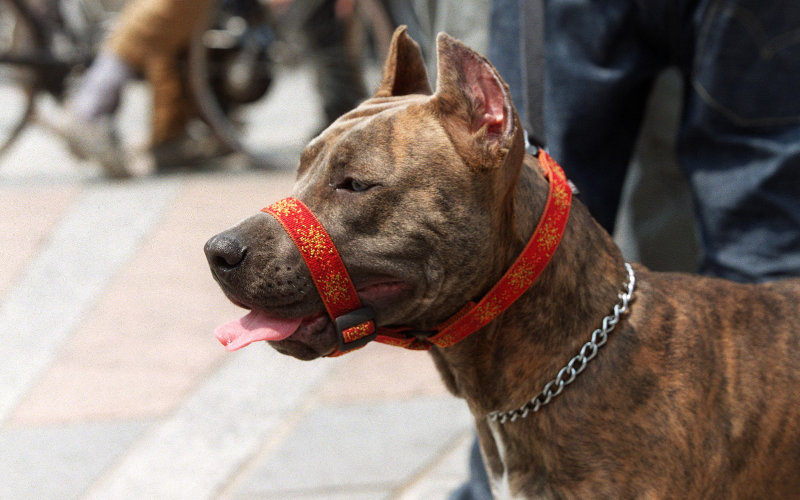Banned Pit Bulls Surge in Moroccan Cities, Raising Safety Concerns

While the law on "the prevention and protection of people against the dangers of dogs" prohibits the possession, domestication, purchase, sale and breeding of dogs classified as dangerous, many young people roam the streets of Moroccan cities accompanied by pit bulls.
"This prohibition stipulated by the law is not perceptible," observes Azzouz Awane, president of the association "Najwa for the victims of dangerous dogs" with Al3omk. To support his words, he reports that dangerous dogs continue to roam many streets of the kingdom, some without muzzles or leashes, threatening the safety of Moroccans, especially on the beaches during the summer, and that they are still present in large numbers in the kingdom, and at the Qariya market in Casablanca. "There is almost no effect of this law regarding the prohibition, and its use remains limited," Awane said, adding that it could have an effect when an incident of a dog attack on a person occurs, and the case will be brought before the courts. He will denounce the existence of a kind of "indifference" on the part of both dog owners and citizens. He also insists on the need to raise awareness and alert about the dangers of these dogs so that people avoid them and protect themselves.
Law 56-12 had been passed in August 2013. According to this text, "a dangerous dog is a dog that presents, by the nature of its breed or its morphological characteristics, an aggression deemed dangerous for man." The passage of this text is justified by a fear of the rise in cases of dog bites. Morocco records 50,000 cases per year. Many people have been bitten by dangerous dogs, including pit bulls and rottweilers. In 2018, the Minister of the Interior and his colleague from Agriculture, Maritime Fisheries, Rural Development, Water and Forests had established a list of dangerous dog breeds covered by this ban. These are the Staffordshire Bull Terrier, American Staffordshire Bull Terrier, known as pit bull dogs, Mastiff, known as Boerboel dogs, and Tosa.
The same law requires any person possessing, holding or keeping a dog over 3 months of a non-prohibited breed to declare it to the competent administration, which creates a database allowing the identification of the dog and its owner. It also requires the possession of a health record for the dog containing information identifying it, as well as its owner or holder or guardian, in addition to the need to vaccinate it against rabies, muzzle and leash the dog, and not leave it wandering in public streets, collective residential buildings and public places.
Related Articles
-

French Retirees Abroad Face Digital Revolution: Biometric App Replaces Traditional Proof of Life
5 September 2025
-

Fake Colonel Arrested: Massive Fraud Scheme Uncovered in Morocco’s Southeast
5 September 2025
-

Royal Rift: Macron and Morocco’s King Clash Over Pegasus Spyware Scandal
5 September 2025
-

Moroccan Cities Clash: Wedding Halls Spark Noise Pollution Crisis and Human Rights Debate
4 September 2025
-

Rif Protest Leader Zefzafi Breaks Silence: Patriotic Speech at Father’s Funeral Stirs Al Hoceima
4 September 2025